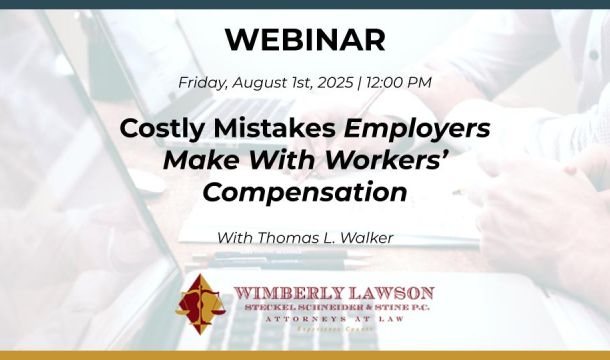Appeals Court Rules that Title VII Covers Discrimination Based on Sexual Orientation
Earlier this week, the Second Circuit Court of Appeals (covering New York, Connecticut and Vermont), in an en banc decision, ruled that Title VII's prohibition on discrimination on the basis of sex extends to discrimination based on sexual orientation. (Zarda v. Altitude Express, Inc., 2d Cir., No. 15-03775, opinion 2/26/18).
"Sexual orientation discrimination—which is motivated by an employer's opposition to romantic association between particular sexes—is discrimination based on the employee's own sex," the appeals court said in an opinion by Judge Robert Katzmann.
This decision reversed one by a three-judge panel of the same court. The case drew a lot of interest: a group of 50 companies and organizations—including Microsoft Corp., Alphabet Inc.'s Google and Viacom Inc.—filed briefs arguing discrimination based on sexual orientation should be illegal. On the other side, the Trump administration supported the employer and argued against the protection of sexual orientation from discrimination under Title VII. Attorney General Jeff Sessions has been critical of the decision.
This is the second Appeals Court (the Seventh Circuit is the other) to find that discrimination on the basis of sexual orientation is covered by Title VII. However, the Eleventh Circuit Court of Appeals (covering Georgia, Florida and Alabama) ruled last year that Title VII does not cover discrimination on the basis of sexual orientation. A request for the U.S. Supreme Court to hear the Eleventh Circuit case was denied. Nevertheless, there is an obvious split among the Circuits on this issue, and the U.S. Supreme Court is the place to resolve these types of splits, so stay tuned!
Kathleen Jennings, Principal is a principal in the Atlanta office of Wimberly, Lawson, Steckel, Schneider, & Stine, P.C. She defends employers in sexual harassment and other employment litigation and provides training and counseling to employers in employment matters. She can be contacted at kjj@wimlaw.com.
©2018 Wimberly Lawson
The materials available at this blog site are for informational purposes only and not for the purpose of providing legal advice. You should contact your attorney to obtain advice with respect to any particular issue or problem. Use of and access to this Web site or any of the e-mail links contained within the site do not create an attorney-client relationship between Wimberly Lawson and the user or browser. The opinions expressed at or through this site are the opinions of the individual author and may not reflect the opinions of the firm or any individual attorney.
Earlier this week, the Second Circuit Court of Appeals (covering New York, Connecticut and Vermont), in an en banc decision, ruled that Title VII's prohibition on discrimination on the basis of sex extends to discrimination based on sexual orientation. (Zarda v. Altitude Express, Inc., 2d Cir., No. 15-03775, opinion 2/26/18).
"Sexual orientation discrimination—which is motivated by an employer's opposition to romantic association between particular sexes—is discrimination based on the employee's own sex," the appeals court said in an opinion by Judge Robert Katzmann.
This decision reversed one by a three-judge panel of the same court. The case drew a lot of interest: a group of 50 companies and organizations—including Microsoft Corp., Alphabet Inc.'s Google and Viacom Inc.—filed briefs arguing discrimination based on sexual orientation should be illegal. On the other side, the Trump administration supported the employer and argued against the protection of sexual orientation from discrimination under Title VII. Attorney General Jeff Sessions has been critical of the decision.
This is the second Appeals Court (the Seventh Circuit is the other) to find that discrimination on the basis of sexual orientation is covered by Title VII. However, the Eleventh Circuit Court of Appeals (covering Georgia, Florida and Alabama) ruled last year that Title VII does not cover discrimination on the basis of sexual orientation. A request for the U.S. Supreme Court to hear the Eleventh Circuit case was denied. Nevertheless, there is an obvious split among the Circuits on this issue, and the U.S. Supreme Court is the place to resolve these types of splits, so stay tuned!
Kathleen Jennings, Principal is a principal in the Atlanta office of Wimberly, Lawson, Steckel, Schneider, & Stine, P.C. She defends employers in sexual harassment and other employment litigation and provides training and counseling to employers in employment matters. She can be contacted at kjj@wimlaw.com.
©2018 Wimberly Lawson
The materials available at this blog site are for informational purposes only and not for the purpose of providing legal advice. You should contact your attorney to obtain advice with respect to any particular issue or problem. Use of and access to this Web site or any of the e-mail links contained within the site do not create an attorney-client relationship between Wimberly Lawson and the user or browser. The opinions expressed at or through this site are the opinions of the individual author and may not reflect the opinions of the firm or any individual attorney.

Kathleen J. Jennings is a former principal in the Atlanta office of Wimberly, Lawson, Steckel, Schneider, & Stine, P.C. She defends employers in employment matters, such as sexual harassment, discrimination, Wage and Hour, OSHA, restrictive covenants, and other employment litigation and provides training and counseling to employers in employment matters.
Related Content
Get Email Updates
Recent Content

Third Circuit Applies Jarkesy to Toss Massive H-2A Fines

As the Trump Administration Ramps Up Worksite Enforcement, Here's How to Be Ready

How to Audit Employment Discrimination Laws Compliance

TPS Update (As of 6/17/2025)

TPS Designation for Honduras and Nicaragua Automatically Extended, But the Date is Uncertain
